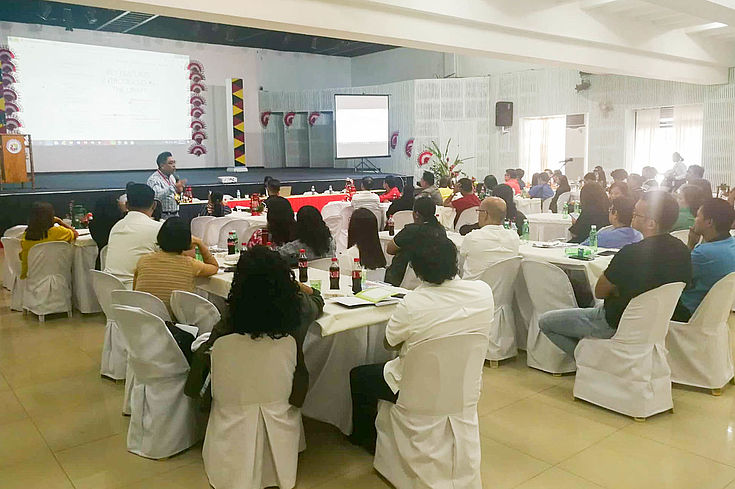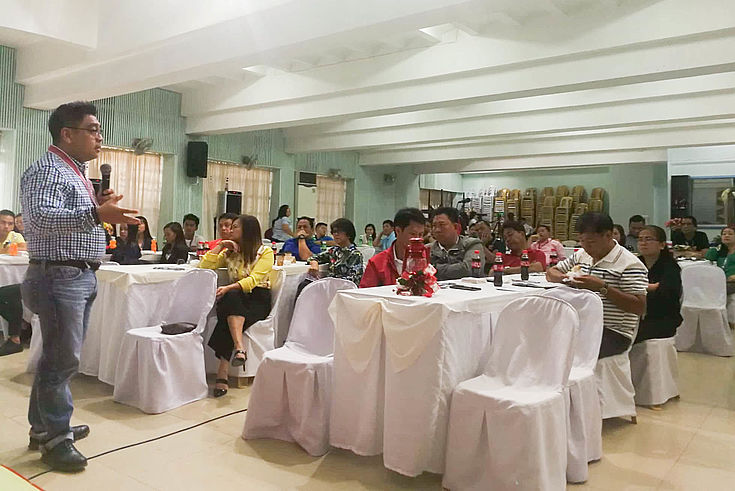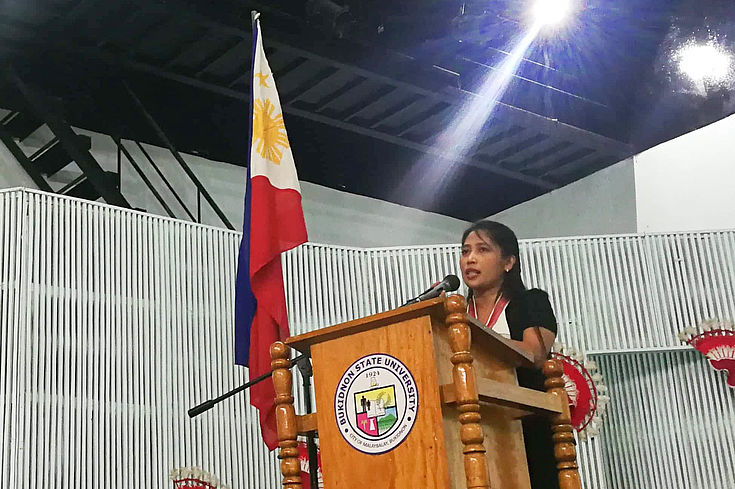Initiating Discourse on Federalism
Bukidnon Indigenous Communities’ Representatives Discuss Federalism
HSF
The concerns of the indigenous peoples in the Province of Bukidnon were at the forefront during a forum on federalism held at the Bukidnon State University (BukSU) in Malaybalay City on the morning of 30 October 2019.
Numbering more than eighty-five, the participants comprised representatives from the local indigenous councils, local government units and representatives from the offices of the line agencies of the government in the province as well as academic officials and media practitioners (broadcast and online). They voiced their doubts and had their queries answered by the speakers – one, a member and the other, a Technical Assistant of the erstwhile Consultative Committee formed by the Office of the President – both of whom had, in their capacities, a hand in contributing to the drafting of the Bayanihan Federal Constitution in 2018.
During the forum, the participants actively took part in the discussion and expressed appreciation for the insights shared by the speakers as well as the focus given to matters concerning the indigenous peoples and their unique needs as diverse groups of people, much more than it has been in other similar activities. The half-day activity was organised by the Pimentel Institute for Leadership and Governance (PILG) together with the BukSU and with support from the Hanns Seidel Foundation (HSF).
The Province of Bukidnon is home to seven tribes, namely: Talaandig, Higa-onon, Bukidnon, Umayamnon, Matigsalug, Manobo and Tigwahanon. The activity was organised in this province particularly to respond to their requests for more information about federalism and the Bayanihan Federal Constitution, and to help address their concerns and questions about the topic. Their main concerns, as indigenous peoples, were for their needs as different tribes to be addressed, for their culture and traditions to be preserved and for their rights to be protected.
HSF
The participants wondered aloud as to whether federalism safeguards the rights of indigenous peoples, asked whether the country’s adoption of a federal system of government would benefit indigenous cultural communities (ICC’s) and drew attention to the possible implications that changes wrought by such an adoption would mean for the indigenous peoples. In response to these points, the speakers explained key characteristics of federalism and pointed out relevant provisions in the Bayanihan Federal Constitution that would in principle serve to protect the rights of the indigenous peoples, meanwhile providing a level of flexibility for local governments to address actual conditions on the ground.
The lack of awareness and understanding by the general public of federalism, the various deliberations and in-depth discussions that contributed to the drafting of the Bayanihan Federal Constitution and the concept per se of the establishment of a government system through a constitution were seen as stumbling blocks that badly needed to be addressed through the continued conduct of information activities on these topics.
Suggested as one of the ways to address the above challenges was the holding of follow-on activities and discussion sessions that provide the venue for the people to further dissect general concepts of federalism and have even more extensive exchanges on the topics and prevailing concerns of the people in relation thereto. This process of continuous education and exchange is expected to also help dispel the negative impression people have come to associate with federalism and Charter Change, especially the feared possible further proliferation of political dynasties, rampant graft and corruption, and the dreaded dominance of the less endowed provinces by the more prosperous and powerful ones.
HSF
In their responses in the online survey held at the conclusion of the forum, the participants showed that they were able to gain information about the topic that was important to them and to understand specific points in the Draft Charter that concerned them. The results also showed that, while the participants had some level of comprehension and idea about the topic on hand, the continued conduct of information activities on these topics would greatly help to further increase their awareness and understanding about federalism and the Draft Charter and enable to share the knowledge and information with others, such as their constituencies, fellow members in the community and the like.
The general public would be in a better decision-making position when equipped with a clear understanding of federalism and the Bayanihan Federal Constitution, and what the country’s adoption of federalism and could mean for the Philippines and its people. At the same time, they would be more likely to accept what they understand. As this is currently far from reality, this is a challenge that would need to be hurdled for there to be a truly participative citizenry.
This forum was held as part of the PILG-HSF partnership on the project “Increasing Awareness of the General Public on Federalism as a System of Government.”



